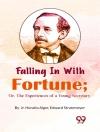‘Elsie Venner, ‘ a novel published in 1861 by Oliver Wendell Holmes, weaves a rich tapestry of romance, psychology, and moral philosophy set against the backdrop of New England society. Known for its intricate narrative style, Holmes employs a detailed and introspective lens, exploring the complexities of human nature through the protagonist, Elsie, who embodies both innocence and innate ferocity. The book’s unique exploration of the connection between character and environment, coupled with its innovative use of vivid imagery and symbolism, places it within the tradition of American Transcendentalism while critically engaging with themes of gender and identity that would resonate in later literature. Oliver Wendell Holmes, a prominent figure in American literature and medicine, was deeply influenced by his own experiences as a physician and his keen observations of society and human behavior. His background in both the literary and medical fields provided a unique perspective on the psychological implications of morality and social expectations, often reflected in his writing. Holmes’s ability to bridge these two seemingly disparate worlds enabled him to craft a narrative that delves into the intricacies of mental states and societal pressures. ‘Elsie Venner’ is a must-read for those seeking an insightful examination of character and societal norms in 19th-century America. With its profound psychological insights and nuanced character development, the novel invites readers to reflect on the nature of humanity and the influence of one’s environment, making it a timeless piece for scholars and casual readers alike.
Tentang Penulis
Oliver Wendell Holmes Sr. (1809–1894) was an American polymath based in Boston, renowned as a poet, essayist, physician, and lecturer, whose literary work often mirrored his keen observations and scientific background. Holding an MD from Harvard Medical School, Holmes integrated his medical insights with his literary production, providing a unique perspective in his storytelling. One of the most noteworthy contributions of Holmes to American literature is his novel ‘Elsie Venner: A Romance of Destiny’ (1861), which is often deemed one of the earliest instances of the ‘medical mystery’ genre. The book reflects Holmes’s interest in the interplay between heredity and environment, a concept that predated the modern understanding of genetics. Holmes was an influential figure among the Fireside Poets, a group known for their conservative, family-friendly verse, which was intended to be read aloud by the family hearth. His work is characterized by its wit, urbanity, and a deeply moral concern. Aside from his fictional works, Holmes contributed to the literary canon with his vastly popular ‘Breakfast-Table’ series, which includes ‘The Autocrat of the Breakfast-Table’ that first appeared in The Atlantic Monthly. His legacy endures both in literature and law, the latter sphere influenced indirectly by his equally acclaimed son, Oliver Wendell Holmes Jr., who became an Associate Justice of the US Supreme Court. Holmes Sr.’s work often is studied within the context of 19th-century American thought and the value of intellectual and scientific engagement within literature.












